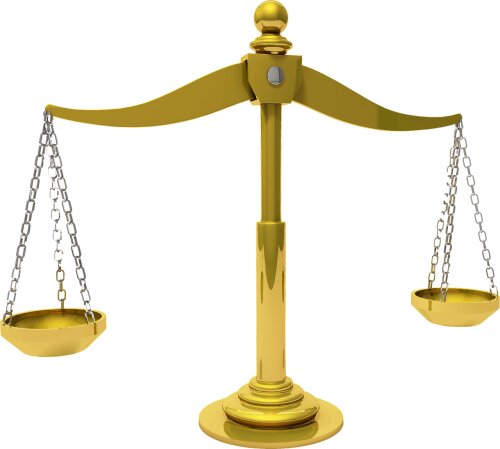Best Education Law Lawyers in Mthatha
Share your needs with us, get contacted by law firms.
Free. Takes 2 min.
List of the best lawyers in Mthatha, South Africa
About Education Law in Mthatha, South Africa
Education Law in Mthatha, a town in the Eastern Cape Province of South Africa, involves the statutes, policies, and practices that govern the educational system. This area of law primarily deals with issues surrounding the rights and responsibilities of students, teachers, and educational institutions. Education Law ensures compliance with the national standards set by the South African Department of Basic Education and addresses regional needs and challenges, such as resource allocation, student rights, teacher qualifications, and school governance.
Why You May Need a Lawyer
There are several situations in which individuals or institutions may require legal assistance in Education Law. Common scenarios include disputes over educational rights and access, discrimination or unfair treatment within educational settings, school governance and policy issues, and disciplinary actions against students or teachers. Additionally, legal advice can be essential in understanding educational reforms, compliance with educational standards, and when negotiating contracts for education service providers.
Local Laws Overview
Mthatha, like the rest of Eastern Cape, adheres to national educational laws and policies while addressing local issues. Key aspects include the South African Schools Act, which governs the organization, governance, and funding of schools. Provincial policies may address specific challenges faced by schools in the region, such as poverty-related barriers to education, teacher shortages, and infrastructural inadequacies. Understanding these laws and policies is crucial for ensuring that educational practices within Mthatha are fair, effective, and compliant.
Frequently Asked Questions
What are my child's rights in the education system?
Your child has the right to free and compulsory basic education, as mandated by the South African Constitution. This includes protection against discrimination and access to quality education.
How do I address unfair disciplinary actions taken against my child?
If you believe your child has been unfairly disciplined, you can first address the issue with the school's principal. If unresolved, you may escalate the matter to the school governing body or seek legal advice to ensure that the school's actions comply with the South African Schools Act.
What are the responsibilities of school governing bodies?
School governing bodies are responsible for the policies, administration, and financial management of schools. They ensure compliance with educational laws and uphold the school's mission and goals.
How can I ensure my child's school is compliant with educational laws?
You can request a copy of the school's policies and performance records. Regular community involvement and attending governing body meetings can also help ensure transparency and compliance.
What should a teacher do if facing unfair dismissal?
Teachers facing unfair dismissal should explore internal grievance procedures, report to labor unions, or consult with a legal professional specializing in labor and education law to discuss potential legal actions.
What recourse is available for educational discrimination cases?
Victims of discrimination can file complaints with the Department of Education. Legal action can also be pursued through equality courts or seeking assistance from human rights organizations.
How can a school deal with bullying incidents effectively?
Schools should have comprehensive anti-bullying policies as part of their code of conduct and take decisive action in educating students on respectful behavior and conflict resolution.
What legal mechanisms support students with disabilities?
The South African education system promotes inclusive education, supported by the Department of Basic Education's policy on Screening, Identification, Assessment, and Support (SIAS) to ensure equal access for students with disabilities.
How are school funding and resource allocations determined?
Funding and resources are typically allocated based on school needs assessments, national funding formulas, and provincial adjustments to ensure equity across schools.
Is homeschooling a legal option in Mthatha?
Yes, homeschooling is legal in South Africa. Parents must register with the provincial Department of Education and adhere to the national curriculum requirements to comply with legal standards.
Additional Resources
For further assistance, consider the following resources:
- Eastern Cape Department of Education: Provides local educational policies and governance information.
- Legal Aid South Africa: Offers legal support to those who qualify for assistance.
- Equal Education: An organization advocating for quality and equality in education.
- South African Human Rights Commission: Addresses cases of educational discrimination.
Next Steps
If you require legal assistance concerning Education Law in Mthatha, start by documenting your concerns and any relevant incidents. Contact an attorney specializing in education law to discuss your situation. Legal aid organizations may also offer services based on eligibility. It is advised to engage in legal consultation early to understand your rights, obligations, and the potential outcomes of your situation.
Lawzana helps you find the best lawyers and law firms in Mthatha through a curated and pre-screened list of qualified legal professionals. Our platform offers rankings and detailed profiles of attorneys and law firms, allowing you to compare based on practice areas, including Education Law, experience, and client feedback.
Each profile includes a description of the firm's areas of practice, client reviews, team members and partners, year of establishment, spoken languages, office locations, contact information, social media presence, and any published articles or resources. Most firms on our platform speak English and are experienced in both local and international legal matters.
Get a quote from top-rated law firms in Mthatha, South Africa — quickly, securely, and without unnecessary hassle.
Disclaimer:
The information provided on this page is for general informational purposes only and does not constitute legal advice. While we strive to ensure the accuracy and relevance of the content, legal information may change over time, and interpretations of the law can vary. You should always consult with a qualified legal professional for advice specific to your situation.
We disclaim all liability for actions taken or not taken based on the content of this page. If you believe any information is incorrect or outdated, please contact us, and we will review and update it where appropriate.








